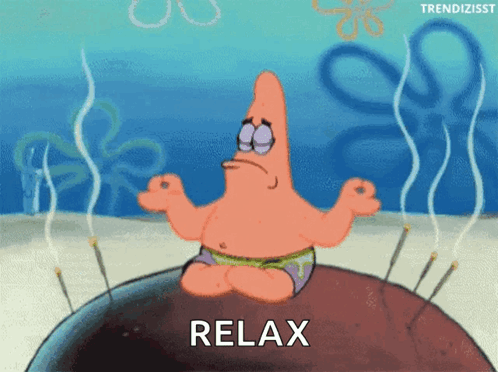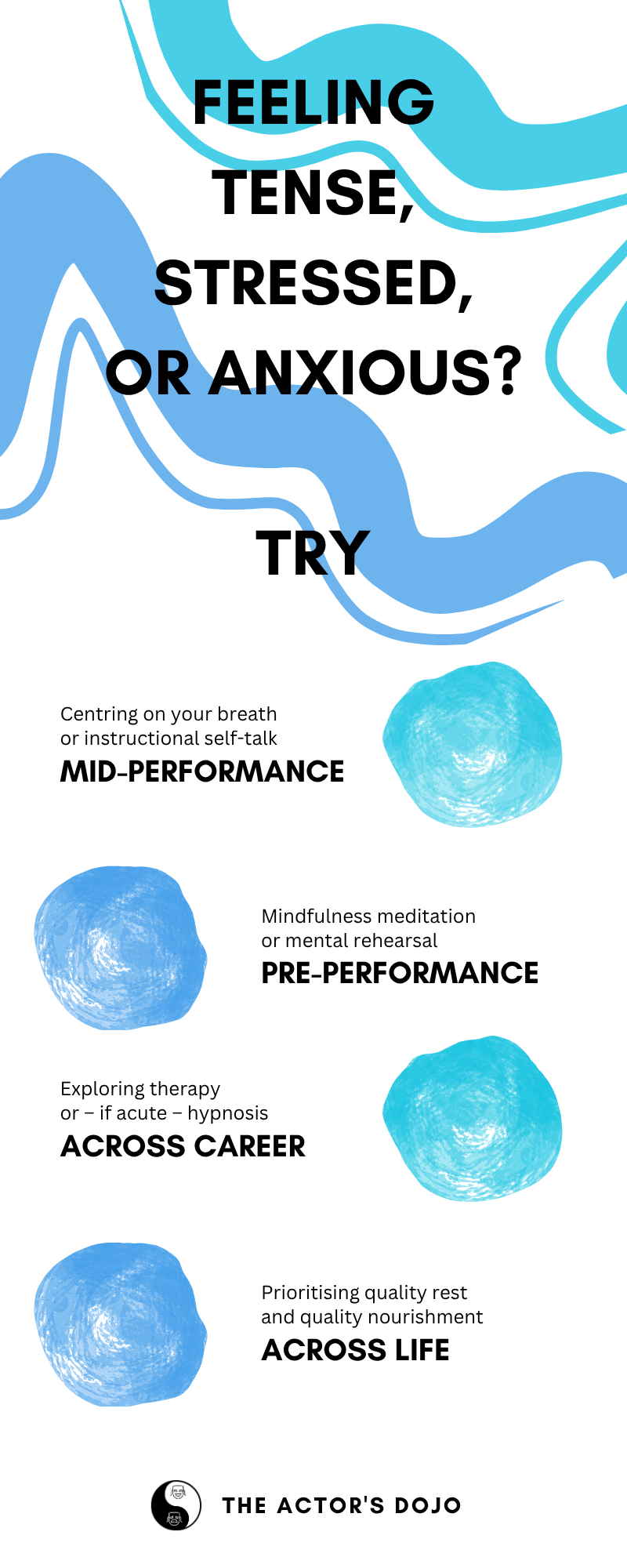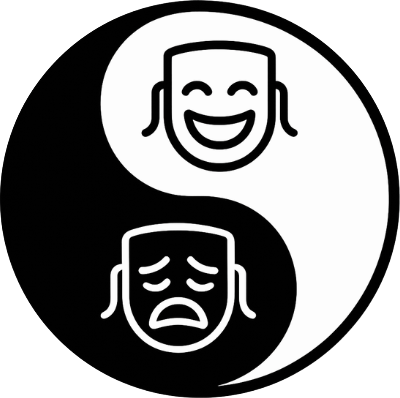If You've Ever Been Told to "Relax"...
"Relax" is a tricky note for us actors to receive. On the one hand, performance contexts are inherently stressful.[1] On the other hand, "relaxing" will likely improve our performance.[2] Still, it's a vague note. It specifies neither the perceived "problem" nor the suggested "solution".
In this article, you'll learn what directors / teachers actually mean by this note and what to do about it.
Backed by science; built for the stage and screen.
👊 Actors:
Get evidence-informed insights and strategies to support your performance and well-being. Join the Dojo e-newsletter tribe and make thriving your reality.
🧭 Drama schools & Production companies:
Bring pioneering, research-backed coaching into your classroom or rehearsal room. Let's talk about supporting your actors to perform at their peak – and stay well in the process.
Relaxation in theory
There are a few points worth unpacking here. The first relates to the statement above: performance is stressful, and relaxation is helpful. But there's nuance.
Let's remember that the presence of anxiety – or any other "negative" internal experience – isn't problematic in itself. What becomes problematic is that we very frequently problematise the presence of anxiety.
In research speak: "Emotions [...] are not the enemy of effective performance, but rather it is the things that people do to eliminate or otherwise control emotions that are counterproductive to high-level performance states".[3]
Related research suggests that it isn't the existence or intensity of stress that predicts performance outcomes, but how we view and relate to it.[4] As a result, we can often unlock all the "relaxation" we need simply by relating wisely to stressors and not problematising anxiety.
With this as context, the question then becomes what, exactly, our director / teacher is observing in us that prompts them to give this note.
Most likely, they are picking up on tension we are holding. This tension can be somatic (physical) or cognitive (mental) or a blend of both.[5]
The more we concern ourselves with the "negative" thoughts we're thinking, feelings we're feeling, or stress we're experiencing, the more we bunch up – in our bodies, voices, and minds.
Simultaneously, the more self-focused our attention, the less focused we are on our task, our scene partner, and the present moment.
Unfortunately, "good" acting requires precisely the opposite: a free body, voice, and mind, paired with focus on task, partner, and the present. So, in an attempt to get us closer toward "good", we may be given the note to "relax".

Relaxation in practice
We're now left with the question of what to actually do when given the note "relax". Let's break this down into a few categories.
Mid-rehearsal or mid-shoot
When time is of the essence, try:
- Focusing on your breathing.[6]
- Stretching or shaking out your body.
- Reminding yourself that "Emotions [...] are not the enemy of effective performance".[7]
- Engaging in instructional self-talk.[8]
Pre-performance
Level up your preparatory routine with:
- Progressive muscle relaxation (PMR).[9]
- Mindfulness meditation.[10]
- Mental rehearsal.[11]
- Motivational self-talk.[12]
Across your career
For instances of debilitating chronic anxiety, stress, or tension, consider:
- Working with a licensed psychologist or therapist.
- Exploring hypnosis. Bear with us – a meta-analysis found that hypnosis was the most effective relaxation intervention with athletes. These studies have not yet been conducted with actors, but could be worth exploring in particularly acute cases.[13]
Last but by no means least, double down on the foundations of holistic well-being. We're people first and performers second. We're much better placed to regulate our internal experiences when we're well-rested, well-nourished, socially secure, and financially secure.

TL;DR?
No worries. Here are the three key takeaways:
- Performance is an inherently stressful act. Let's give ourselves some grace.
- Excessive focus on "negative" thoughts, feelings, and stressors can manifest as tension in our bodies, voices, and minds. This tension is often what prompts the note to "relax".
- There are a range of relaxation strategies we can turn to in the moment, as part of our preparatory routines, and across the whole arc of our career.
Love what you're reading? Help us keep it flowing. Donations support the research, writing, and free sharing of evidence-informed tools for actor performance and well-being. Every dollar fuels our mission to make thriving a reality for actors everywhere 🔥
Citations
[1] https://doi.org/10.14264/2272c6a, p. 2
[2] https://doi.org/10.1080/1750984X.2021.1977974, p. 145
[3] [7] https://amzn.to/3Cl3VUp, p. 125
[4] https://amzn.to/4oZqmkz, p. 536
[5] https://amzn.to/4oZqmkz, p. 534
[6] https://amzn.to/4oZqmkz, p. 537
[8] [11] [12] https://amzn.to/4oZqmkz, p. 539
[9] [10] https://amzn.to/4oZqmkz, p. 538
[13] https://doi.org/10.1016/j.peh.2016.05.003, p. 47
Cite us!
IG: @theactorsdojo
APA 7: Norrish, T. (2025, November 15). If you've ever been told to "relax".... The Actor’s Dojo. https://www.dojoactors.com/relaxation/
